Interdependence
How the pandemic revealed the falsehood of individualism, and brought collective awakenings on the importance of vulnerability and connection
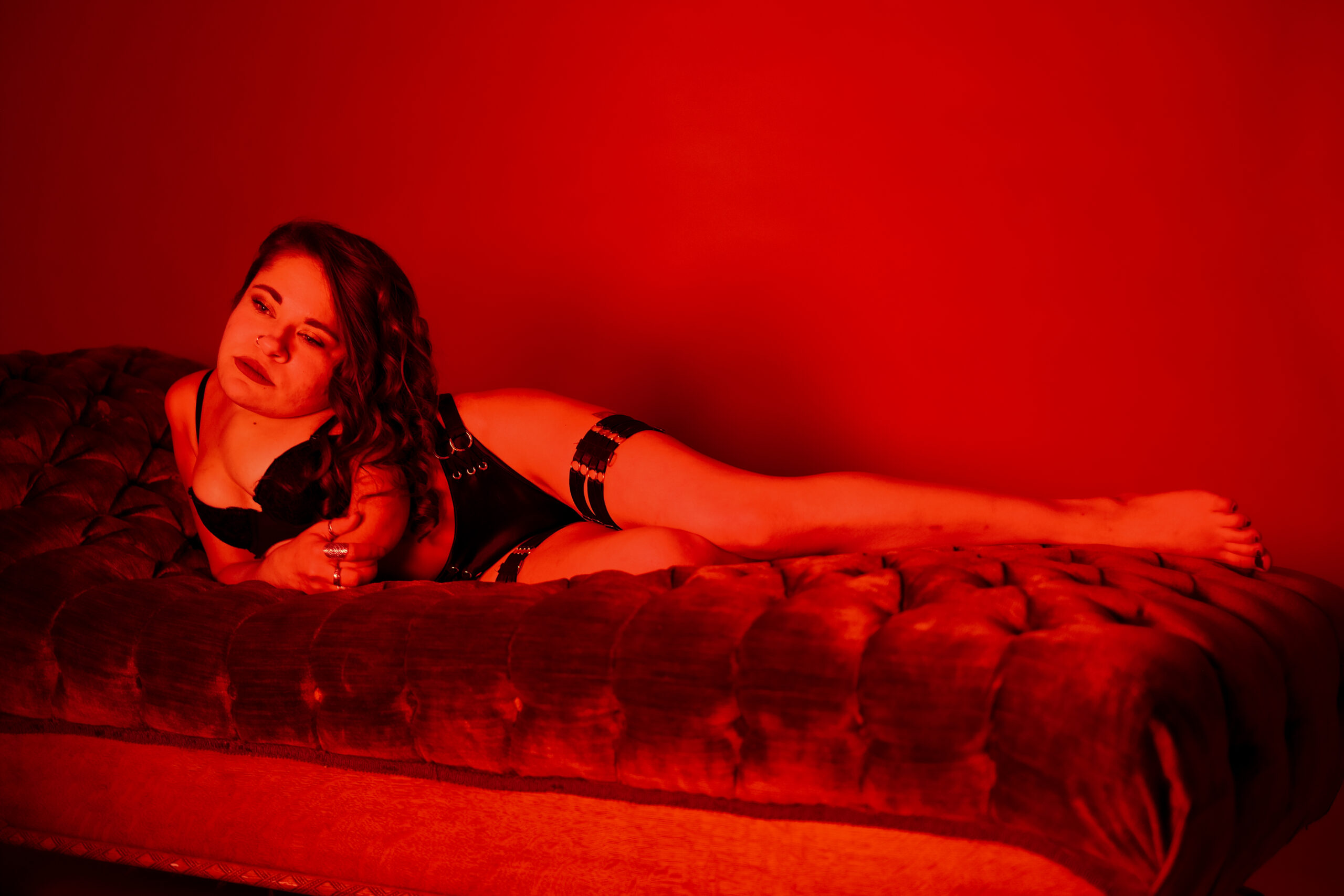
Being an extroverted, people-oriented, disabled interdisciplinary artist during the pandemic catapulted me into a sea of grief, frustration, unlearning, self-reflection, and random bouts of creativity.
My works are often about disability and sexuality, ableism within all types of relationships, mortality, grief, social issues, and anything about humans being human.
For myself, COVID was/is the perfect storm to be my demise. With severe scoliosis and chronic respiratory failure due to 10% lung capacity from multiple pneumonia hospitalizations over the years, being oxygen dependent since 2012 and having a body that cannot recover well from respiratory illnesses anymore, COVID made the persistent thoughts of mortality move from the back of my mind to the edges of my nervous system and every street corner and screen.
Mortality and collective suffering brought on irritable grief, a newer feeling of nothing left to lose, along with the task of balancing between fight, flight, or freeze. For me, it was the death of Minnesota Nice, a refusal to be digestible for able-bodied folks, a deep unearthing of processing trauma, a shift in priorities of where my energy goes, and an urgent need to eliminate things that are not good for myself and others.
Everyone has had a different experience throughout the COVID-19 pandemic, and like most of my art, my experience was very tied to the reactions, actions, and nature of others. The topics I focus on in my art and in my everyday life became intensified and inescapable. I had no choice but to adapt to processing them alone within quarantine.
My personal life became a rollercoaster more than ever. It included an instantaneous absence of photographing intimate portraits, modeling, coworking, and investing time in those around me.
I took a deep dive into disability, grief, unlearning, trauma work, and my rage with ableism being so deeply rooted in all of us—how “at times explaining implicit bias to those not under an unforgiving magnifying glass becomes a futile circus act.” I wrote more poetry about more personal subjects, and adapted to unexpected permanent transitions to new ways of functioning. I used my platform to livestream discussions on disability inspiration porn, and reach a larger audience via global publications.
I wrote about “Sisterly Survival Guilt,” the preference of honesty over niceness in “Be Mean to Me,” “Infantilization,” “A Sub-Human Burdensome Romance,” “Sometimes,” “Tangible Feelings of Writing,” “Noticing.” I wrote about how “I want my joy to feel at home, and I want my grief to feel free to come and go.” I completed my third and final essay of my sexuality and disability essay project.
I adapted by curating intentional, safe social gatherings like outdoor backyard movie nights with a projector, or carefully and intentionally making projects happen when it still required co-models or collaborating virtually.
I learned the most useful ways to participate in community needs, like being a communication hub during the uprising, using my platform for mutual aid then (and still,) creating a community consent workshop, and sharing insight on inspiration porn and the disability experience during a pandemic via my platform, livestream discussions, and global publications such as Vogue Italia and Enorm Berlin.
I had loss of loved ones through conflict or COVID itself, like the passing of my grandpa and the end of friendships.
Going from a packed social calendar to not being able to do the most important thing to me—seeing people and connecting and creating together—I was also forced to sit with a decline of mental health as well as witness the contradictory and often selfish discussions and ways of others.
Just like in my personal experience of it, COVID-19 created a stagnant yet traumatic container of circumstances that we as a collective were forced to adapt to and sit in. It’s like the world stopped spinning and everything jolted from the halt. It gave room for us all to take a step back and face the ways we treat each other and the things we distract ourselves from to ignore. It gave us a reality check on our intentions, our priorities, our privileges, and our connections with each other.
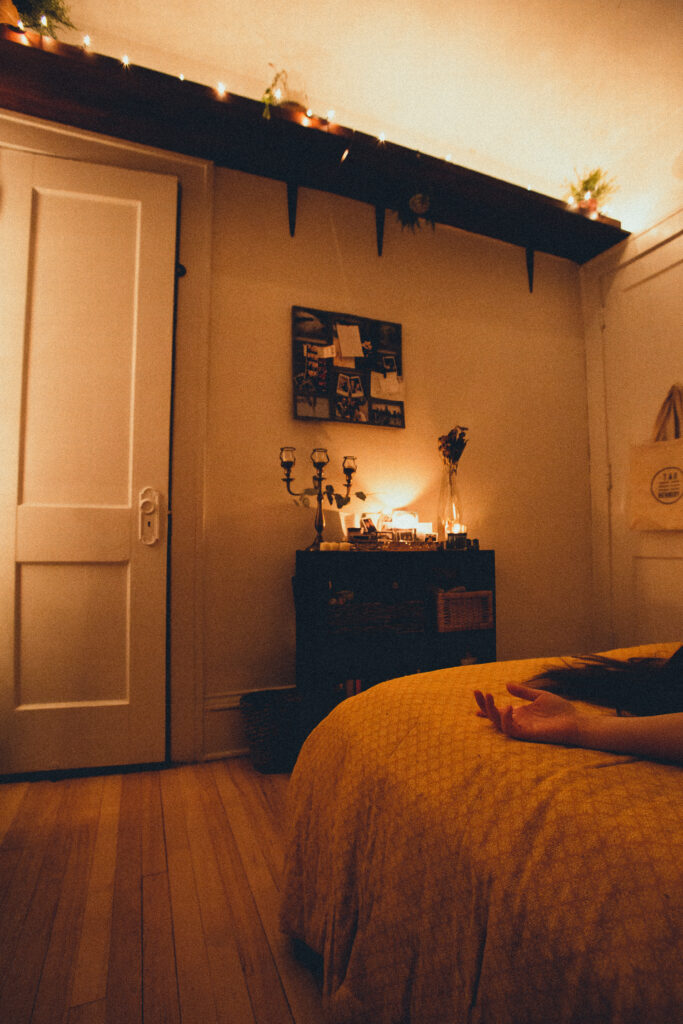
Trista Marie, wish you were here, March 2020. Photo: Trista Marie. 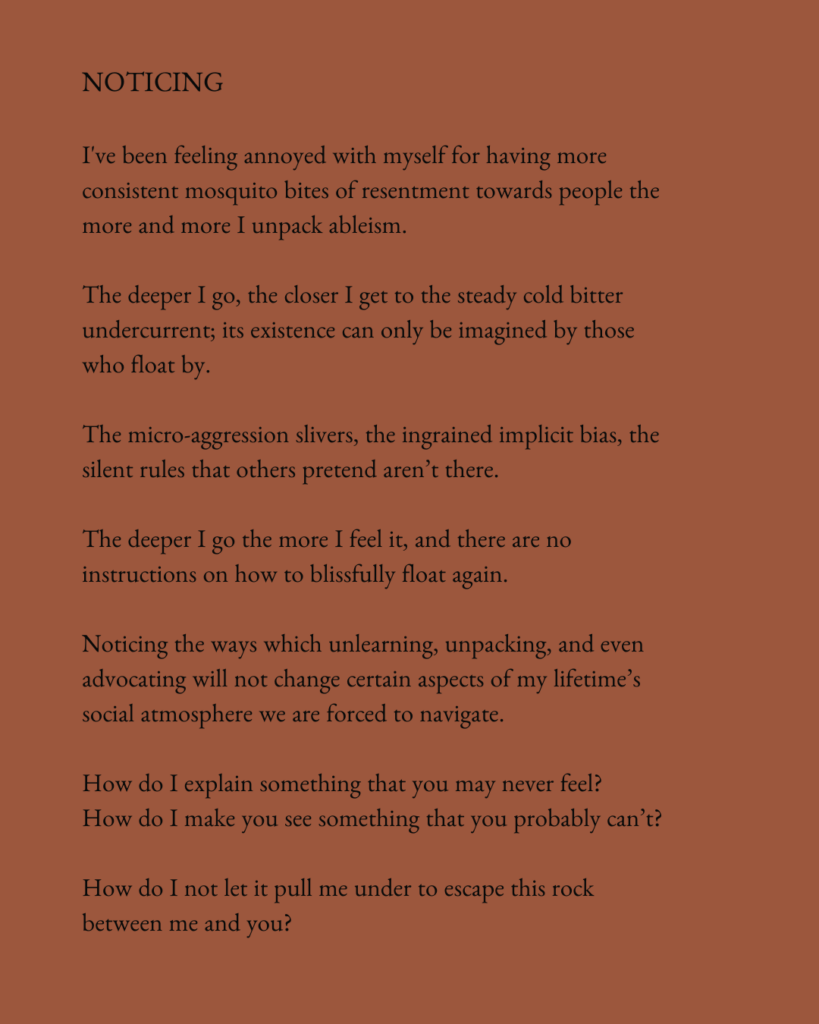
Trista Marie, “Noticing.” 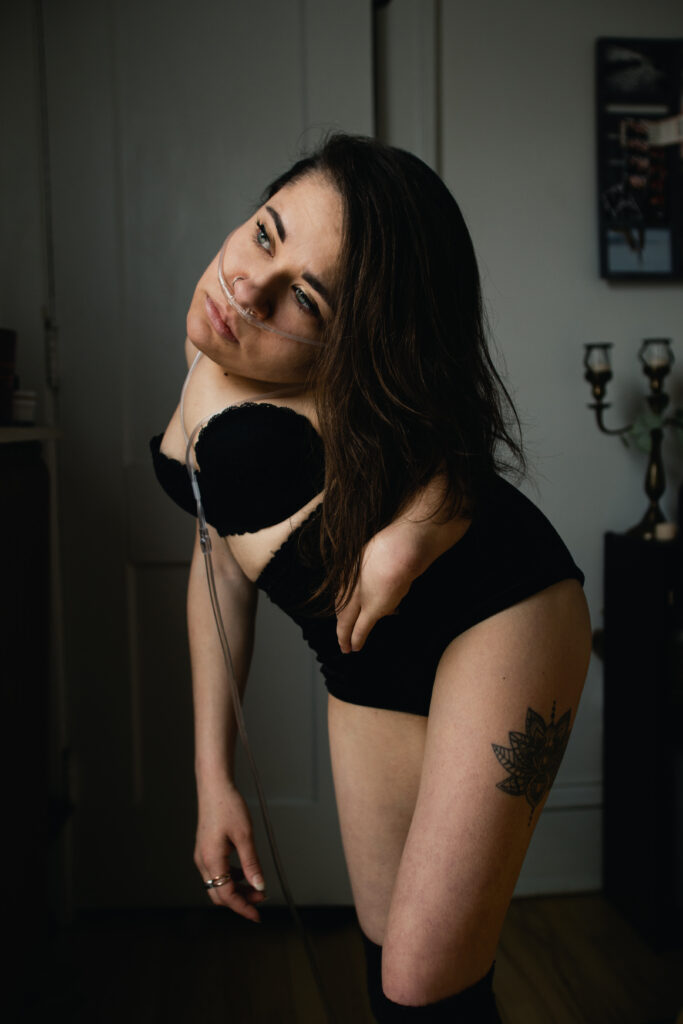
Trista Marie, self portrait for emma, April 2020. Photo: Trista Marie. 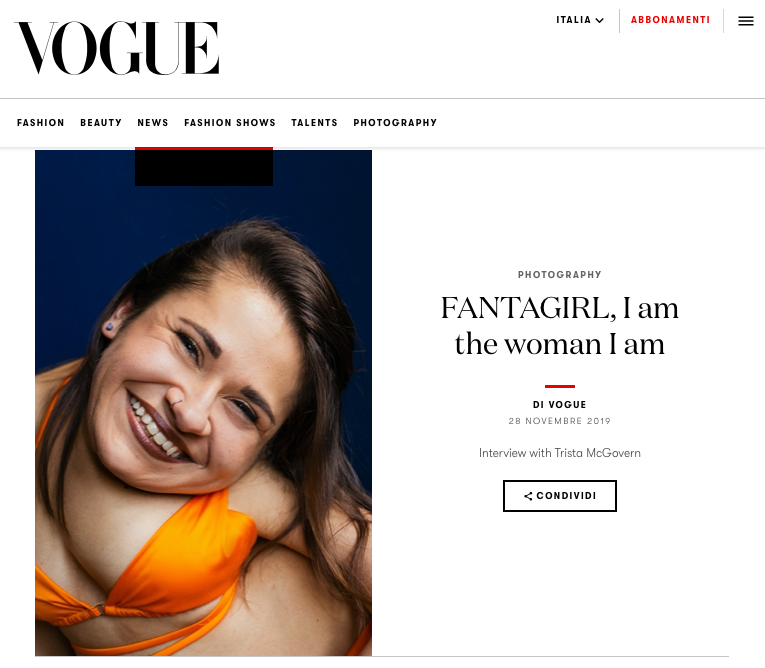
Trista Marie in Vogue Italia.
The collective awakenings with social justice, abuse, accountability, the detriments of capitalism, issues with authority from government to employers to family, etc., have been a persistent saturation of demands of our attention—whether good or bad. The overwhelming shifts within stagnancy of our isolation has left us with dichotomies that have never been stronger.
One of the biggest waves of push and pull was due to how the pandemic essentially immersed the able-bodied population into the disabled experience. It has been a bittersweet topic to have pervasively present with others on top of each of our own individual circumstances.
The mainstream discussions finally happening about disability/accessibility, that would inevitably be forgotten, created an itchy bitterness. I didn’t want to hear the weak epiphanies that felt like performative participation in the latest social issue trend, like a fad. I didn’t want to hear the awareness that would inevitably become silent and fruitless. I didn’t want to hear daily struggles being highlighted just because it became a temporarily relatable circumstance for others. It felt like watching a hypothetical debate during isolation, one that would end in us just being left to our own devices, still. I attempted to share the tip of the iceberg of the “internal monologue” on my Instagram platform. The epiphanies were paired with people looking me in the face and saying that they don’t mind COVID because they would be fine. The contradictions of discussing interdependence during a pandemic perpetuated by individualism were not lost on me.
Looking back on what caused the bitterness, I realized that the awareness wasn’t entirely futile. Everyone got a taste of disability alongside the general tension of survival versus convenience. What had been before extra benefits of ease became requirements of accessibility and new ways of navigating daily life. What used to be optional choices switched to forced necessities. Even if no structural changes are implemented, an empathy for disability was subtly instilled amongst us. The ripple effect is real even when it’s not happening in big enough ways.
I’ve seen ripples within my own work: by being vulnerable, being on display, holding up a mirror to people’s ableist ways, I have been told I have given other disabled babes permission to take up space and put words to feelings they couldn’t explain. I have been told by able-bodied folks that I opened their eyes to their ignorance or ableism within themselves and those around them.
Having these conversations, no matter the ways they are brought up, still helps the collective. With the pandemic, everyone experienced parts of many disabled experiences and began to understand the realities. The convenience of accessibility became a necessity for the masses: working from home, virtual classes, curbside pickup, Zoom meetings and events, and telehealth for doctor appointments and therapy. People received what should be the norm: safety nets of sick days from work, housing assistance, and realistic unemployment income. People experienced isolation, lack of access to vacations and concerts, burnout, limited spoons, insomnia, feelings of helplessness, self-medication, cabin fever, persistent thoughts of mortality, and hopelessness. People had no choice but to learn self-soothing, to reevaluate their relationships with capitalism and work, to slow down and really choose who they gave their time to, and consider how things affect themselves and others.
People realized the importance of connection, community, and interdependence. Even those who still grasp on to individualism cannot deny that our actions affect others as millions of people caught COVID and hundreds of thousands died in the US due to just that: the falsehood of individualism.
What started as a seemingly personal, intense discomfort of missing people, turned into the masses looking under every rock of societal norms and personal conditionings. Even if things feel futile or forgotten, even if the silence halts the changes—there is no going back to before. From my own work throughout the pandemic, it has become undeniable that the personal is inherently part of the collective.
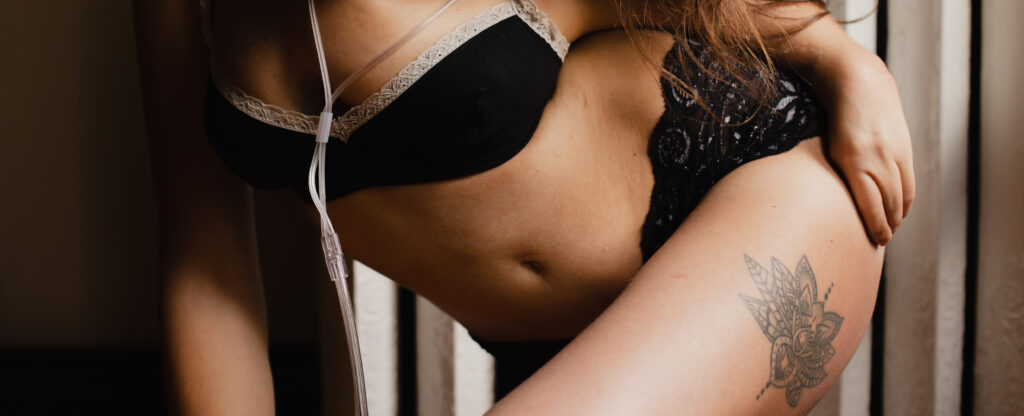
Internal monologue
Writing from May 18, 2020:
Feeling feisty and helpless and undesirable and full of baggage lately, so here’s another photo from the Mortality shoot. I haven’t been able to make cohesive thoughts about Covid-19, but with the state opening things back up today, my nihilism is in full effect. Ableism has never been more apparent, and accommodations used literally by the general populations and general health concerns will be ignored soon after things “go back to normal.” I’m just tired. Tired of hearing friends and family have the "well I'll be fine if I get it" attitude right in front of me. Individualism is absolutely imaginary, and the lack of interdependent care, especially from people I know, is a slap in the face as well as proof we aren’t doing what we should as a society. I constantly feel like I’m not doing enough as an individual, a friend, a lover. But goddamn, sometimes it’s other people’s turn.
Infantilization
August 28, 2020:
People expect me to be the infantilized sweet cherub since I'm disabled so when I'm actually mad or straightforward people are visibly shocked and upset by it. I'm not here to inspire you or always be your therapist or just be sweet to you. I will tell you the things you don't want to hear even if you didn't expect it coming out of my mouth. I have dark twisted humor and flaws even past my physical form. I will see some of your privileges and the ways you interact with people simply due to the body I've lived in. I have just as much multifaceted humanity as you, and I absolutely notice and feel every time you act otherwise.
end of a journal entry, 11/2020
November 6, 2020:
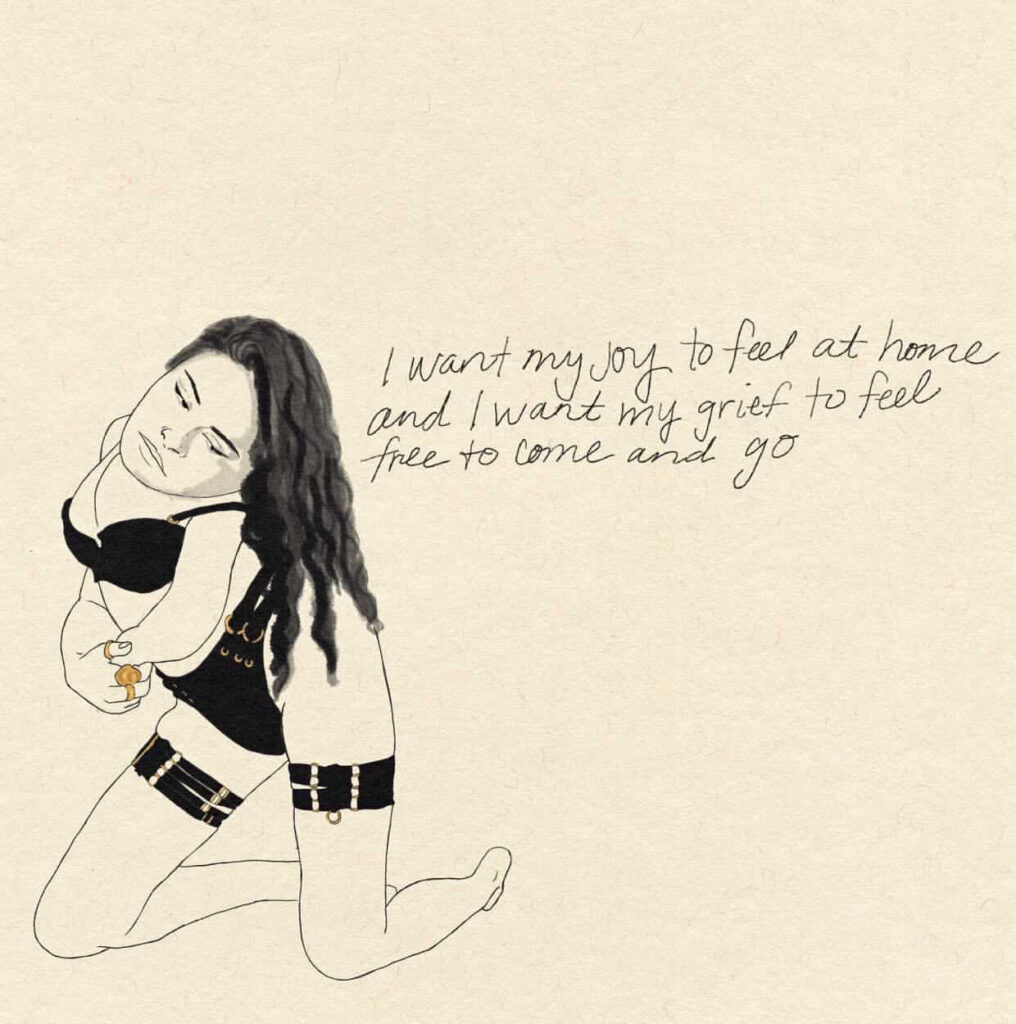
BE MEAN TO ME
January 22, 2021:
Attention, attention, it has come to my attention—
That compared to exclusion and subtleties, an honest ugly reaction has become my preference
There’s such an overflow of compliments birthed from obligation and fueled by pity
That I have since promised to prohibit myself from holding your ego with a validating thank you
The submissive fawning over your oppressive niceties
Is like faking an orgasm in hopes it’ll maybe get better
One day
At least if you’re mean to me
You don’t see me formed of fragility
Maybe if you’re mean to me
I can taste the sour humanity
Tragically, thankfully those that are mean to me
Show me where we stand with a side of profanity
So instead-
Be mean to me.
It might be fucked up but sometimes
I have less resentment for the creep on the street than those unaware of their irony.
I’d rather be completely looked over than see you graciously stoop to my level.
I’d rather hear me being discussed in the checkout line than endure a friend’s pitiful sympathy.
I’d rather get obviously avoided at bus stops than feel a lover’s ghosting.
I’d rather be blatantly othered than maybe, always, just not enough.
Wrap me in rage and drag me to the stocks
I’d rather publicly demonstrate these realities
than have to withstand anymore fucking gaslighting
And unsaid demands of managing your shock
Be mean to me.
Give me your sharp questions and unfiltered thoughts.
Keep that expression on your face instead of swallowing it whole.
Its time to face the ways you put my stomach in knots
And the relentless endless reasons I must stay in this role
You say these things aren’t on your radar
but I’m RIGHT FUCKING HERE
I guess its easy to miss when I’m held at arm’s length
In hopes if you’re nice enough I’ll let these things disappear
We can’t deny it’s fucked up that its come to this point
That I’d rather have a stranger proclaim their disgust
Than continue to feel people I know, pretend not to tiptoe
You think your hesitations are new?
This is bigger than you.
I want you to show me what you’ve got and the ways that you see.
You’ve already calloused my skin
and still hide or cry for some so-called clarity.
I’d rather you tell me all the bad sad things
you slowly learned from the world about me-
so I can stand there still,
unwavering,
as an equal on all accounts.
But if you still find yourself unsure,
Just fucking be mean to me.
Noticing
February 2, 2021:
I've been feeling annoyed with myself for having more consistent mosquito bites of resentment towards people the more and more I unpack ableism. The deeper I go, the closer I get to the steady cold bitter undercurrent; its existence can only be imagined by those who float by. The micro-aggression slivers, the ingrained implicit bias, the silent rules that others pretend aren’t there. The deeper I go the more I feel it, and there are no instructions on how to blissfully float again. Noticing the ways which unlearning, unpacking, and even advocating will not change certain aspects of my lifetime’s social atmosphere we are forced to navigate. How do I explain something that you may never feel? How do I make you see something that you probably can’t? How do I not let it pull me under to escape this rock between me and you?